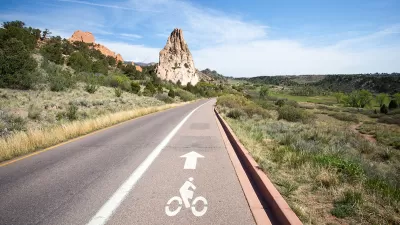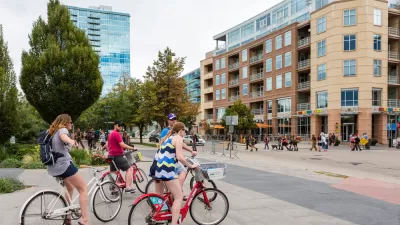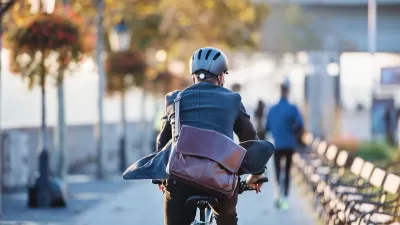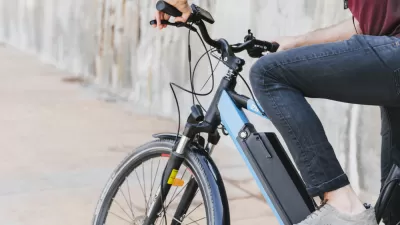A state program is giving free electric bikes to residents in an effort to provide more transportation options and reduce dependence on cars.

The state of Colorado is gearing up to expand on a program that gives free electric bikes to low-income residents. The first phase of the program gave the bikes to low-income essential workers like Shalon Bowens, a sexual health clinic employee in Aurora. The program's goal is to reduce dependence on cars and provide another option for reliable transportation for essential workers during the pandemic. Sam Brasch reports on the program's results and expansion.
The Can Do Colorado eBike Pilot will use a $560,000 grant from the Colorado Energy Office, the City of Denver, and the Regional Air Quality Council to award over 100 e-bikes complete with helmets, locks, and pumps to local residents. Interviews with program participants show that they are replacing car trips and enjoying the opportunity to use a bicycle to get around.
The program came about as a response to changes in transportation options and behavior brought on by the pandemic, says Will Toor, director of the Colorado Energy Office, in the article: "he saw bus routes being cut and essential workers avoiding public transportation." Going forward, Toor thinks e-bikes could play a "much larger role" in getting Colorado residents out of cars and insists equity "is really important" in meeting Colorado's climate goals. Colorado's climate action plan "has received fierce criticism from environmental advocates, who complain the policy outline lacks specifics and didn’t include enough input from marginalized communities bearing the brunt of climate change."
FULL STORY: How Colorado’s Free E-Bike Program Fits Into Its Plan To Slow Climate Change

Study: Maui’s Plan to Convert Vacation Rentals to Long-Term Housing Could Cause Nearly $1 Billion Economic Loss
The plan would reduce visitor accommodation by 25,% resulting in 1,900 jobs lost.

North Texas Transit Leaders Tout Benefits of TOD for Growing Region
At a summit focused on transit-oriented development, policymakers discussed how North Texas’ expanded light rail system can serve as a tool for economic growth.

Why Should We Subsidize Public Transportation?
Many public transit agencies face financial stress due to rising costs, declining fare revenue, and declining subsidies. Transit advocates must provide a strong business case for increasing public transit funding.

How to Make US Trains Faster
Changes to boarding platforms and a switch to electric trains could improve U.S. passenger rail service without the added cost of high-speed rail.

Columbia’s Revitalized ‘Loop’ Is a Hub for Local Entrepreneurs
A focus on small businesses is helping a commercial corridor in Columbia, Missouri thrive.

Invasive Insect Threatens Minnesota’s Ash Forests
The Emerald Ash Borer is a rapidly spreading invasive pest threatening Minnesota’s ash trees, and homeowners are encouraged to plant diverse replacement species, avoid moving ash firewood, and monitor for signs of infestation.
Urban Design for Planners 1: Software Tools
This six-course series explores essential urban design concepts using open source software and equips planners with the tools they need to participate fully in the urban design process.
Planning for Universal Design
Learn the tools for implementing Universal Design in planning regulations.
City of Santa Clarita
Ascent Environmental
Institute for Housing and Urban Development Studies (IHS)
City of Grandview
Harvard GSD Executive Education
Toledo-Lucas County Plan Commissions
Salt Lake City
NYU Wagner Graduate School of Public Service





























